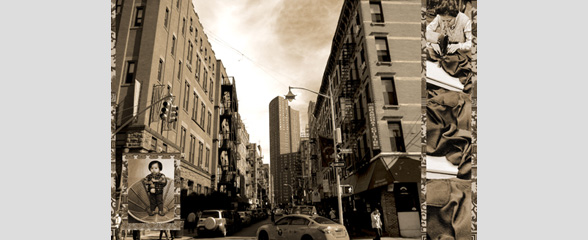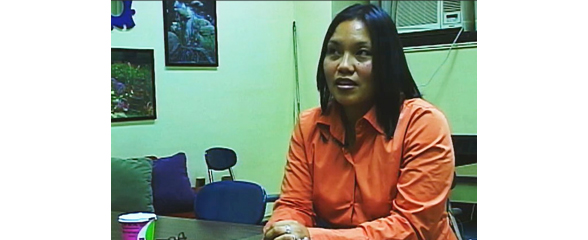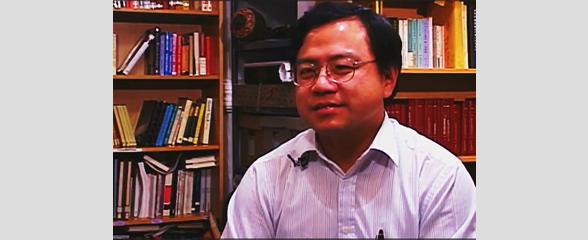Chinese American students

2013.022.001 Oral History Interview with Anne Ho
Anne Ho is a longtime resident of Chinatown in New York City. Ho reflects on how her family moved to the United States and her early childhood growing up in Chinatown. She discusses the garment factory her mother worked at along with her daily routine living in Chinatown. She continues the discussion of garment factories by stating their importance of Chinatown during her childhood along with how Chinatown has changed overall. She then goes to discuss the development of Confucius Plaza and the types of people that lived there. Ho predicts how Chinatown will change in the future. She shares a story of going back to China and meeting her family. Lastly, she states the subjects that should be included in exhibitions and museum archives.

2014.036.011 Oral History Interview with Mirian Yau Oyola October 17, 2003
In this interview, Mirian Yau Oyola recounts her family’s migration from Guangdong, China to Panama and reminisces about her childhood growing up on a ranch and in a large Asian community in Panama. She chronicles her family’s eventual move to New York City, familial dynamics within a mixed family, the difficulties of cultural assimilation into American life with a Chinese stepmother, and the stark contrasts between life in Panama and America. Growing up in Brooklyn, she recalls how her neighbourhood was segregated by ethnicity down to the streets that they lived on, illegal child labor in Chinatown sweatshops, and a family scandal that created an irreconcilable rift. She recalls her involvement with the Chinatown YMCA, work as a youth counselor, and the waves of ethnic Chinese immigrants over the decades. Mirian reflects on the duality of her life being of mixed race (half Chinese and half Hispanic), the cultural expectations placed on her, her struggles with cultural identity, and the distinct emptiness she felt not being fully of either cultures. Mirian vividly recounts the day of September 11th, to which she was an eyewitness, and the confusion and mad scramble to reunite lost children to their parents that followed. She explains her patriotism and describes all the ways that she is proud. She recalls the fears that she felt for many of the children in Chinatown and surrounding neighborhoods in the aftermath of the events.

2014.036.016 Oral History Interview with Wing Ma November 7, 2003
Wing Ma (Ma Wing Guo) was born in China to a poor farming family who moved to Hong Kong as refugees when he was age two. Wing talks about his life growing up in Hong Kong with his mother working in the garment industry and his father working as a chef in Manila. He studied until post-secondary school before moving to the United States to train and work as an engineer. Wing would eventually join the garment industry as a factory owner, and describes the industry decline over time due to overseas competition. This would also lead to his own factory closure. He details workers pay, union benefits such as healthcare, and his involvement with union negotiations as a member and president of the Garment Manufacturers Association. Wing also talks about his involvement with other community organizations following his transition into the liquor industry, such as the Asian American Advisory Council under Peter Vallone and Community Board Three. He shares his experiences acting as a liaison between the government and the local community and shares some of the positive changes this brought to Chinatown. During the September 11th, 2001 attacks, he recalls being shocked and upset that he was unable to reach friends and loved ones. He talks about the effects of the attacks on Chinatown through his personal experiences as a building landlord. He recalls the mass exodus of tenants from the area and the difficulty in obtaining support from relief funds for the Chinatown community. He discusses the need for the government to subsidize and support businesses returning to the area to improve the local economy. He also encourages the Chinatown community to become more active and participate in local government or social work. He concludes with a discussion of his thoughts on the future of the garment industry and alternative job prospects for Chinatown residents.

2014.036.016 Oral History Interview with Wing Ma November 7, 2003
Wing Ma (Ma Wing Guo) was born in China to a poor farming family who moved to Hong Kong as refugees when he was age two. Wing talks about his life growing up in Hong Kong with his mother working in the garment industry and his father working as a chef in Manila. He studied until post-secondary school before moving to the United States to train and work as an engineer. Wing would eventually join the garment industry as a factory owner, and describes the industry decline over time due to overseas competition. This would also lead to his own factory closure. He details workers pay, union benefits such as healthcare, and his involvement with union negotiations as a member and president of the Garment Manufacturers Association. Wing also talks about his involvement with other community organizations following his transition into the liquor industry, such as the Asian American Advisory Council under Peter Vallone and Community Board Three. He shares his experiences acting as a liaison between the government and the local community and shares some of the positive changes this brought to Chinatown. During the September 11th, 2001 attacks, he recalls being shocked and upset that he was unable to reach friends and loved ones. He talks about the effects of the attacks on Chinatown through his personal experiences as a building landlord. He recalls the mass exodus of tenants from the area and the difficulty in obtaining support from relief funds for the Chinatown community. He discusses the need for the government to subsidize and support businesses returning to the area to improve the local economy. He also encourages the Chinatown community to become more active and participate in local government or social work. He concludes with a discussion of his thoughts on the future of the garment industry and alternative job prospects for Chinatown residents.